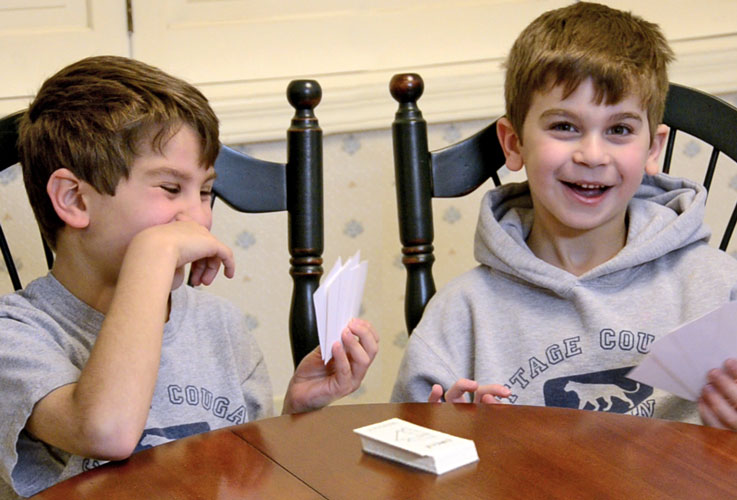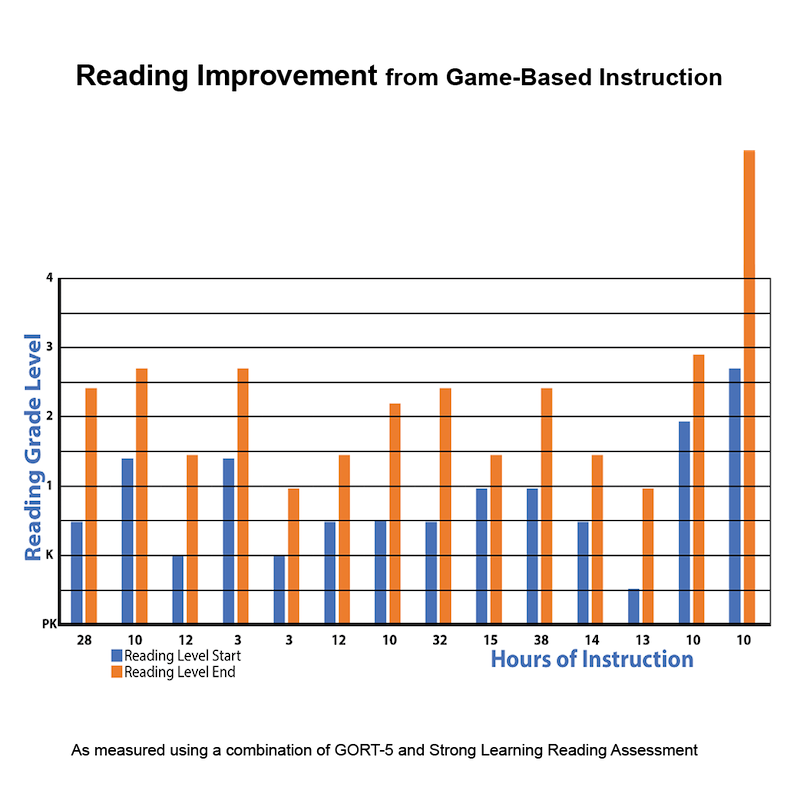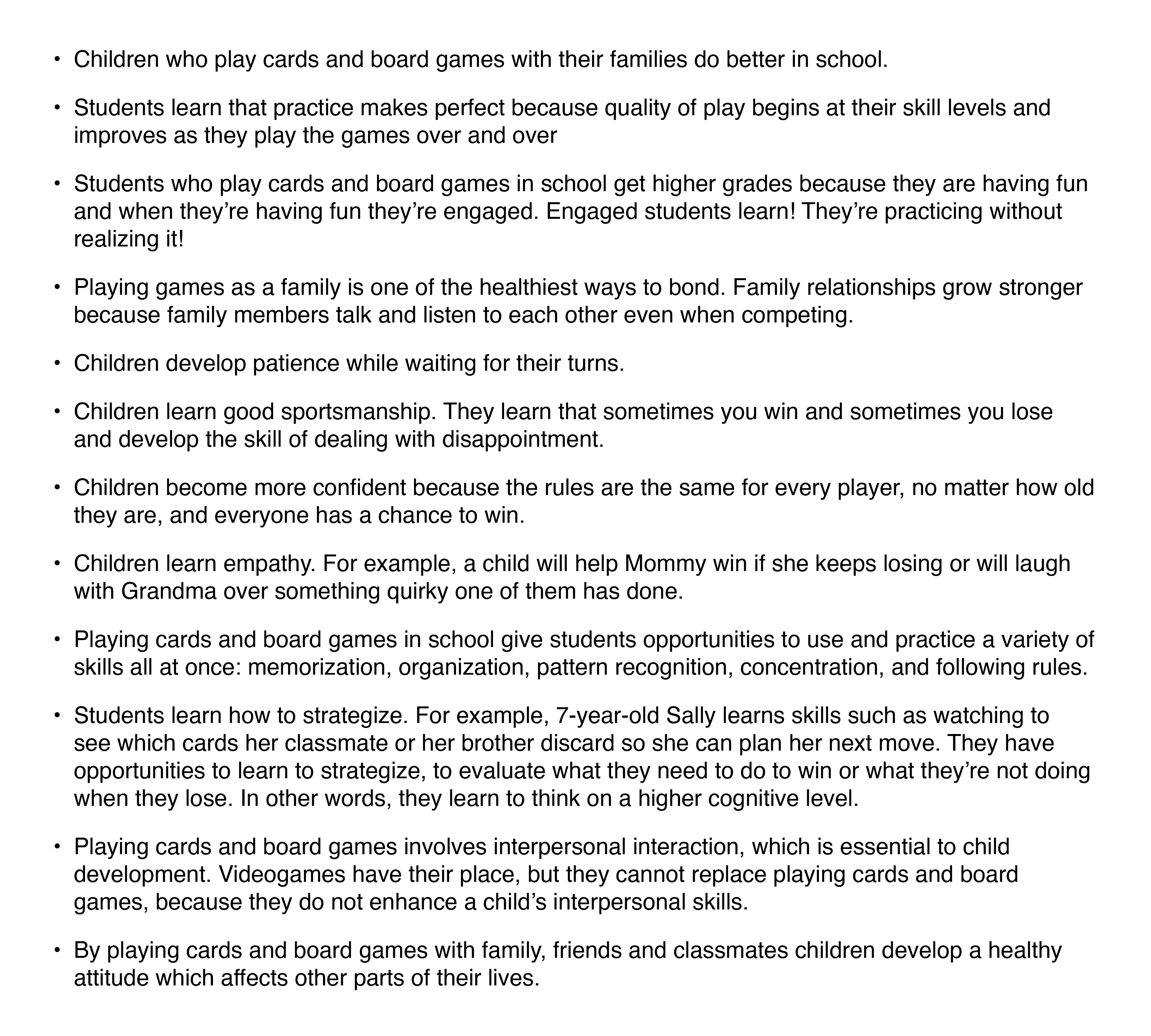Gamify Phonics & Fluency
Your Struggling Readers’ Ticket to Success!

For years, students using SuperDeck card games for phonics, math, and history have learned and retained information more quickly than when they were taught in a traditional learning environment.
A Hunter College Study1 also found that students who learned through playing a card game significantly outperformed their counterparts.
Playing games has positive impacts on learning because anxiety goes down and focus goes up with unlimited practice. Proyer et al’s 20182 research found that game-play improves motivation and academic performance.
Games Play an Important Role in Child Development and Learning
Strong Learning Research Findings
We measured the before and after reading levels of students who were sent to us for tutoring.
Our tutors worked with each of these students using Strong Learning SuperDecksTM, some for as little as three hours.
Results of our study show that on average, students improved more than a grade level at an average of only 15 hours of instruction. >>>>

Outside Research Findings Links
Link to the Hunter College Study: https://www.ncbi.nlm.nih.gov/pmc/articles/PMC4152211/
Link to the Proyer Research: https://www.frontiersin.org/articles/10.3389/fpsyg.2018.01440/full?te=1&nl=well-family&emc=edit_ml_20200701
Benefits of Game-Based Learning Resources

